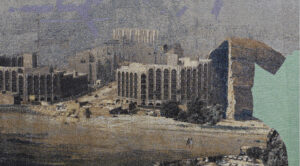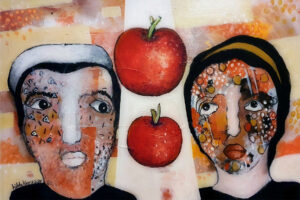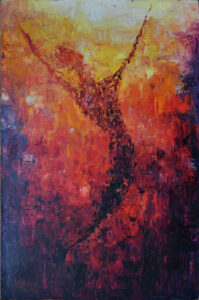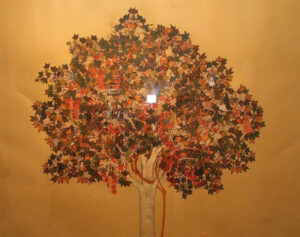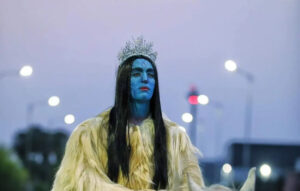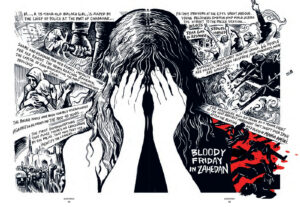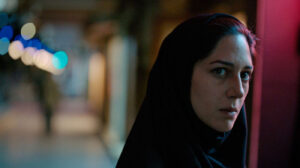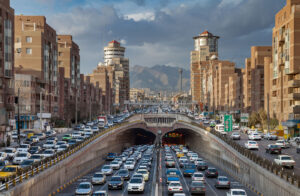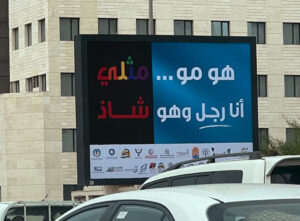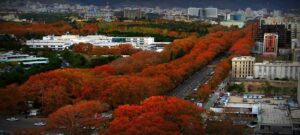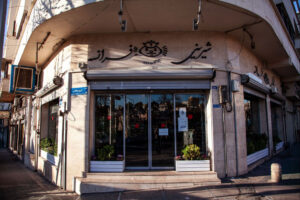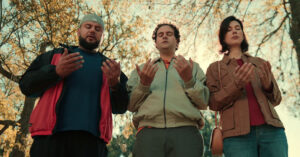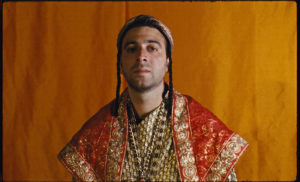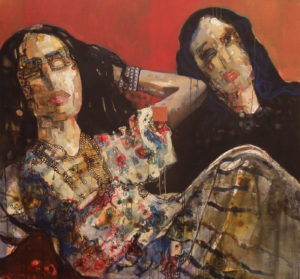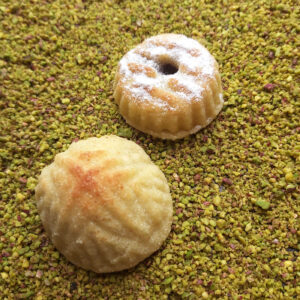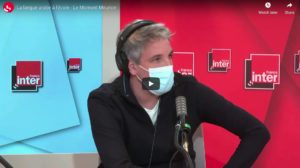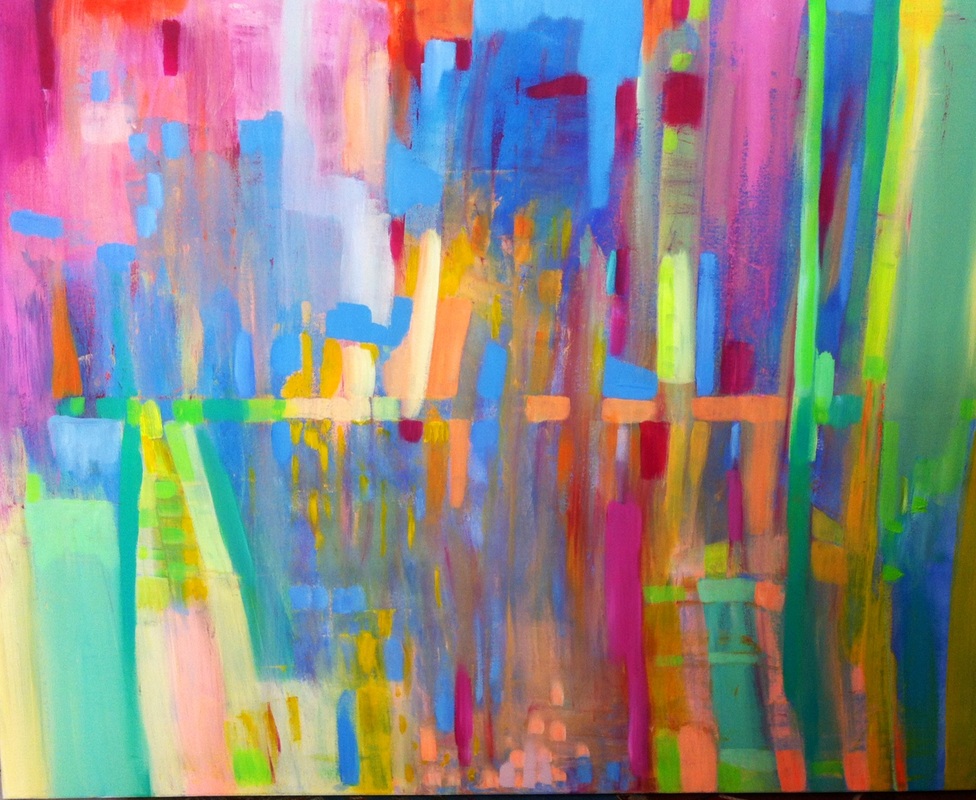
At a mall in Kuwait, I watched two Filipina domestic workers seated at a bench, laughing, sharing an intimate moment. Their pink and blue uniforms stood out in a drab sea of white dishdashas and black abayas.
Barrak Alzaid
Muzak was the background track to the chatter of Hindi, Arabic and Tagalog weaving through the mall. My paper shopping bags thumped against my thighs, pouring over with fast fashion. I needed to beat the surge of traffic that would inch its way to the mosque as soon as the call to prayer rang through. Instead, I stood in wonder at the laughter that cleaved the din, a pair of Filipina women dressed in pink and blue scrubs with their heads thrown back and their mouths open, a picture of exquisite joy.
“Hay nako,” Carmella mutters and shifts her weight on the bench, reaching for her phone. Fingers worry at the volume button. It pings. She clasps Mary Rose’s hand, and her pastel pink uniform presses against her friend’s baby blue sleeve.
“Look,” says Mary Rose. “We are like Easter eggs, perfect for today.”
She points at a large Styrofoam rabbit grasping a basket of pastel foam eggs. A swarm of children take selfies, girls with thin wrists covered in bangles alongside girls swaddled in hijabs. Carmella sucks a breath in and pulls her upper lip taut across her teeth. She rubs her phone until it wakes, revealing a portrait of two girls and a young woman. Carmella cradles the phone and releases a sigh.
Mary Rose wants her friend to smile, shrug it off and say eh, sa ganun malaga aug taboo ng buhay. That’s how life goes. To move on with the daily grind as Filipinas do.
“My friend listen. There will be an opportunity next year, eh diba?”
Carmella taps the lock button on and off. Click. Family. Click. Clock. Click. Family. Click. Clock.
She squeezes her eyes shut and presses a fist to her forehead, “I waited two years to visit them. Madam promised I could return for Christmas. Madam said they would not travel, but sir surprised her with a holiday.”
The plunking Muzak pipes in from grainy speakers. Their voices are still warm from singing hymns so Mary Rose pantomimes a microphone and sings along to Celine Dion.
The call to prayer cuts the song off, one diva upstaging another. A signal that they have fifteen minutes until their employers’ drivers complete their prayers. Carmella hums the rest of the song even as the muezzin drones on and on. Mary Rose protests, but Carmella ignores her, then nuzzles into her friend’s shoulder to mask her giggling.
“You will see your family.” Mary Rose rubs her friend’s back, “Remember we have our duties. It is good to support our children’s education, to support our parents.” She pauses as a draft of air conditioning sweeps the warmth from her voice, “If there was a stable job in the Philippines, I could go back. Bong will start college this year and he will work less. My children need me to send money back.”
Carmella cracks her knuckles one by one and kneads her palms together. She tries steadying her voice but it rises sharply, “You raised your children already, and then you came here. I left my children with my sister when they were very young.” Carmella points at her phone screen. “See? Here is my sister and my daughters. I pay for school, I pay for clothes. But I am not their mother. To them I am like a big sister.”
“Ayah Carmella! You are always their mother, don’t make them worry.”
“Of course I don’t tell them my worries.”
Mary Rose nods. “Remember, I always tell you, it is good you are with a family that speaks English. When I came here six years ago my agency put me with a family that only spoke Arabic. They thought I am ungas–ignorant. Always shouting, shouting. Shouting at each other, shouting at me. Madam always fixing the hijab they made me wear.”
Carmella’s lips pucker and she swears, “Pucha putang ina! You always tell me the same thing!”
Mary Rose shakes her head as if sifting those memories back into the past. “Listen to me. Our madams respect us and our sirs do not harass us. Look at Isabella. After she was trapped inside the house for two weeks she ran away and hid in the desert until the embassy rescued her. Like a spy movie.”
Carmella loosens the phone from Mary Rose’s grip. “Look, I’ll show you another spy movie.”
She pays for her own phone line, and can only afford local calls and texts. When she wants to call her family she uses the driver’s phone and pays him back for the data, so it takes a few attempts to connect to the mall wifi and the jingling mall music returns. Five minutes to pick up.
A tall concrete house emerges on the tiny screen. It could have been any house in any neighborhood across the country. A Filipino and Filipina dart out a side door. The woman looks at the camera, her brow furrowed, eyes squinting in the sun, and shuffles across the courtyard in sandals and socks. The man’s mirrored Oakleys bounce off his chest and he drags a small suitcase. The camera follows them into a dark tinted car. Once inside, light sobs rack the woman’s shoulders.
“Ayah, I’ve seen this video, everyone is sharing it.” Mary Rose’s eyes are shiny and her smile stretches thin across her face. “The embassy arranged this escape, and they posted this video to give awareness of the situation. But they got into trouble with this country’s government.”
“Mission Impossible, na?” Carmella deletes the browsing history. “I have to be careful, madam and sir check my phone, I don’t want them to think I want to escape like this lady.”
They sit still, shoulders press against each other, fingers braid together and start to laugh. They laugh when their phones buzz in unison. They stand and embrace, still laughing, their blue and pink forms eclipsed almost immediately by the swirl of black abayas and white dishdashas weaving past them into the shops.




